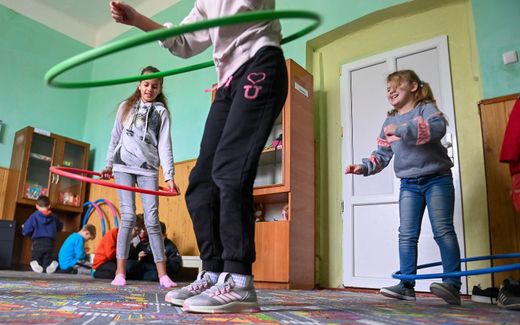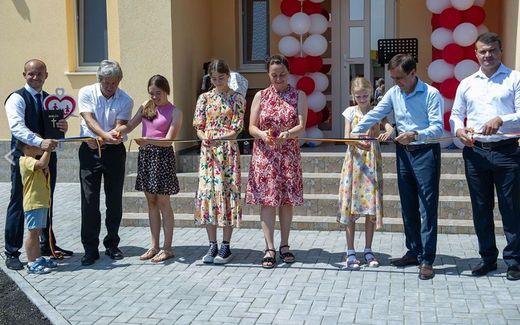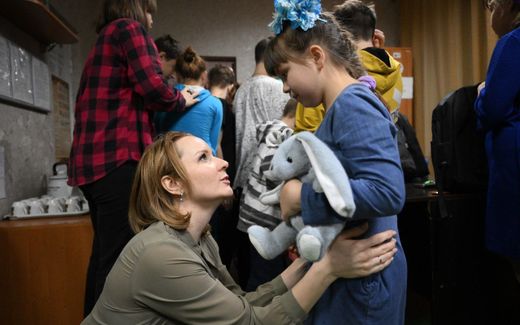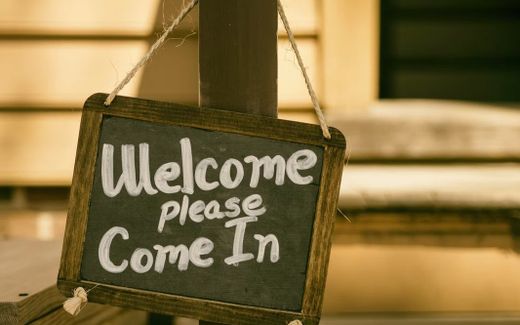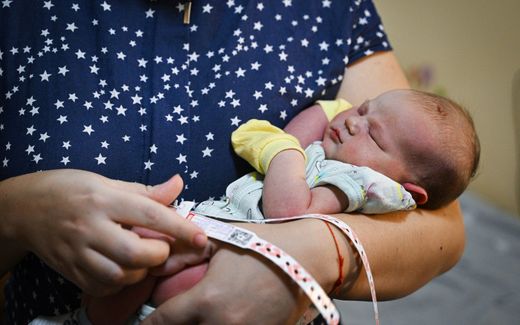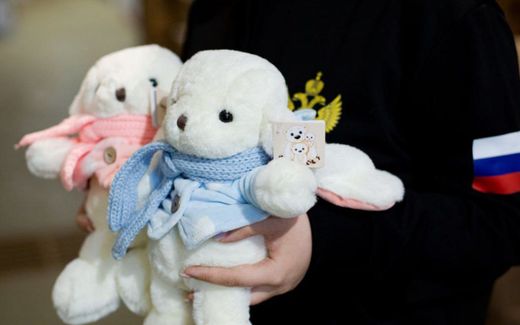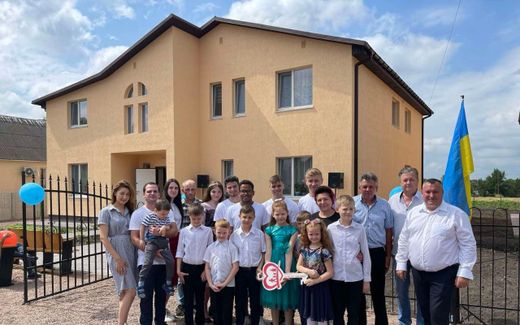Is a world without orphans possible?
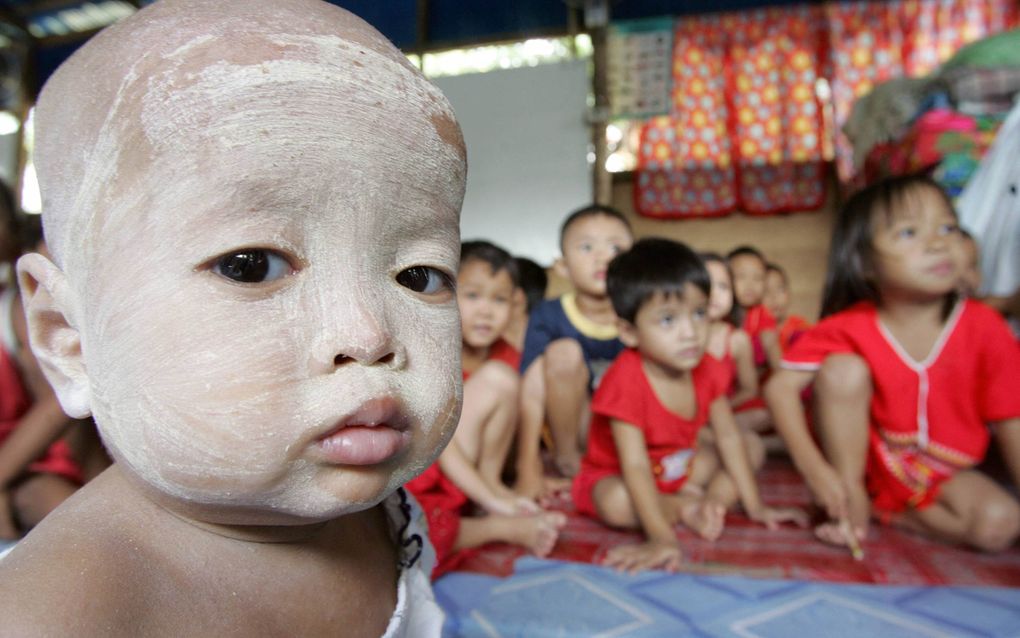
Orphan children dressed in rust-red clothes watch television at the orphan centre in Mae Sot, near the Thai-Myanmar border. Photo AFP, Pornchai Kittiwongsakul
Eastern Europe
“Fifteen years ago, we heard of orphaned twins with no chance to be adopted. Immediately we knew that they should be in our family. The process was both challenging and awesome.”
This is how Alexandru and Nati Ilie from Romania became adoptive parents. In 2009, as a young family, they adopted two 7-year-old twins: a boy and a girl.
Two years later, they heard of a pair of toddlers who had no parents. Alex and Nati started praying for someone to adopt them. But their prayer was answered in an unexpected way: “God changed our hearts and showed us that there was room in our house for more.” So the Ilie family grew with two more young children.
In his work as teacher, school director and church pastor, Ilie had never imagined such a development. But this was not all. Having adopted four children, Alex and Nati naturally started sharing their experience with other families in Romania. In 2014, he was invited as a speaker at the first summit of Alianța România Fără Orfani (ARFO) – a movement dedicated to bring together charities, churches, companies and individuals with a single purpose: that each child should benefit from the love, support and safety of belonging to a family.
Institutionalisation
Most Eastern European countries recovering from Communist heritage have struggled with severe problems of children’s institutionalisation. Statistics presented by Opening Doors for Europe’s Children prior to the Covid pandemics showed reports of children placed in state facilities: Bosnia and Herzegovina (2400), Bulgaria (10,000), Croatia (800), Estonia (1000), Lithuania (2500), Moldova (1110), Romania (9900), Ukraine (104,000).
According to Euractiv, children are placed in orphanages mostly due to poverty or disability, and rarely because they have lost parents. According to estimations in 2023, at least five million children round the world still live in institutional care.
During the past twenty years, the sum total of forcibly displaced people has grown from 16 million to 110 million, leaving the continent with a large number of unaccompanied minors. Almost every large European city has street children victimised by malnutrition, HIV, sex tourism and social stigmatisation.
More than 43 million minors live in an extremely vulnerable situation, having lost family members due to opioid dependencies, war conflicts, the Covid epidemics or natural disasters.
Governments
Since the turn of the century, Eastern European governments undertook measures to alleviate the problem. Formally called “de-institutionalisation”, the process involved closing state run facilities and transitioning “children deprived of parental care” to new forms of residential service.
However, many foster care and adoption systems soon started wearing out due to lack of motivation, insufficient funding, little coordination of resources, deficiency of quality training, disorientation and fatigue among caregivers.
World Without Orphans
In 2010, a large group of committed Christians in Ukraine started a movement with a united vision: to seek solutions for the orphan crisis in their nation. Soon, this effort turned into a global initiative named World Without Orphans (WWO), committed to mobilising the church to respond to the needs of vulnerable children in every nation.
Hundreds of people from all over the world joined the movement’s first two Global Forums in 2016 and 2019. Early March, WWO held its third event of this scale, bringing together more than 500 people from 63 countries. It was hosted in Chiang Mai, Thailand, with a theme “Together from Crisis to Hope”, and a quote from Hebrews 6: “We have this hope as an anchor for the soul, firm and secure.”
WWO is an affiliate of the World Evangelical Alliance (WEA). Since its first Global Forum, the movement has grown from ten local initiatives to 49 active national movements, and 53 more countries with partner organisations.
WWO Europe
The movement established its European office in 2019. “We serve as a hub fostering information and facilitating networking between local and national movements working among vulnerable children in Europe,” the lead coordinator Richard Procter explained in a regional meeting during the Thailand forum.
Since its launch, the European team has organised a number of online seminars: “Seeing the Unseen Children” (2021); “Hidden Homes, Hidden Harms”, “Hidden in Plain Sight” and“Helping Children Heal through Play” (2022); “Working Together to Keep Our Children Safe” and “Caring for Children with Disabilities” (2023).
In March 2023, WWO Europe held a significant consultation in Sofia, Bulgaria, with a theme“Journeying Together”. The event was supported by partners like European Freedom Network, Orphan’s Promise, Refugee Highway Partnership, Christian Alliance for Orphans and others. More than 220 people from 30 nations shared experience, united by the vision of a world where every child is cared for in a safe and loving family, knows their heavenly Father and reaches their God-given potential.
ARFO
This vision is possible only through strong local movements. In March 2015, Alexandru Ilie was designated as director of ARFO – the Romanian partner of WWO. Within a year, the country experienced an unprecedented surge of adoptions. As a result of their shared expertise, ARFO was invited by the Romanian government to lead the process of change.
“Christians will be known by their care. Adoption should be as natural for them as prayer,” Ilie says. His passion is to see the power of Christ revealed as the body of Christ acts in unity.
In an address to the Global Forum in Thailand, he spoke of three types of crises: “othering” people with differences as less human; devaluing weak people as less important; assuming divine judgement for children born with a malformation. “Loving the weak is not about doing them a favour. It reveals the glory of God,” Alex told the forum reminiscing on a passage from John 9.
On a personal level, his life story has grown from fascinating to incredible. Alex and Nati have since welcomed three more children in their home – and today, they are adoptive parents to seven. “People often say we are super spiritual,” Alexandru said. “But it is all about an extraordinary God using ordinary parents to adopt His children.”
Related Articles


